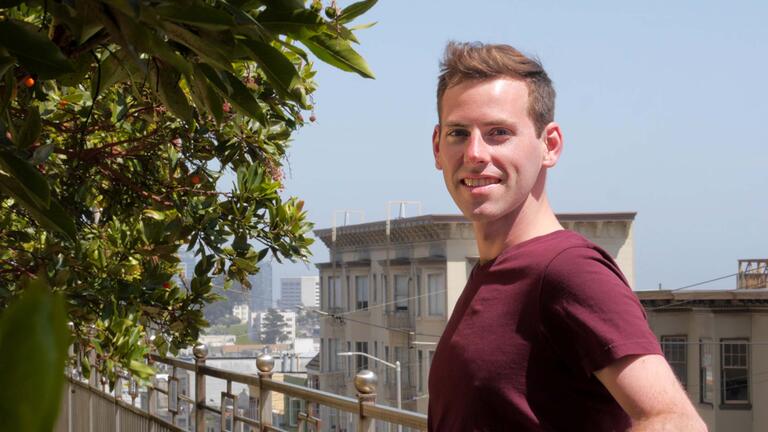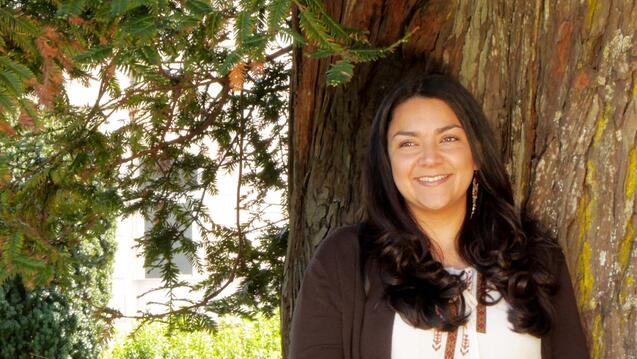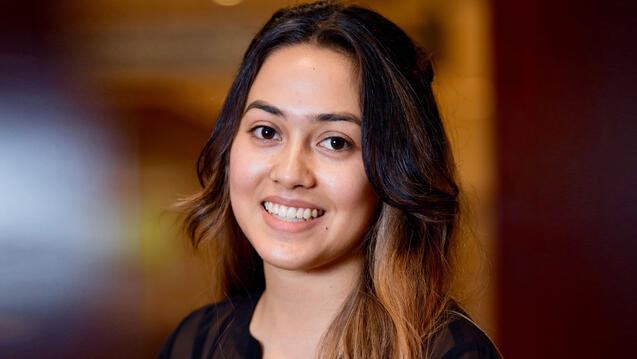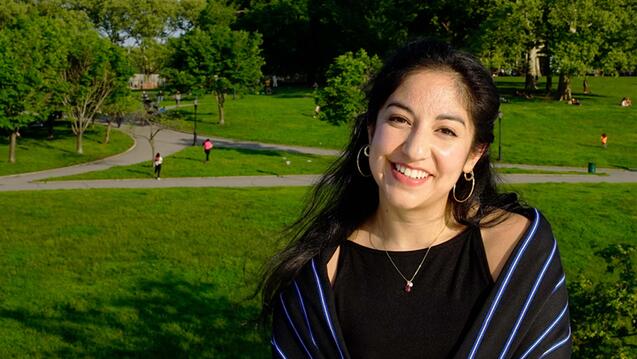
Pursuing Your Own Path
Charles Miller ‘17 is looking forward to the opportunities that await him after graduating from USF with a degree in Spanish Studies. He’s worked for four years at the Fine Arts Museums of San Francisco — who run the de Young and Legion of Honor museums — in different capacities, and has used his Spanish knowledge in many ways, from interacting daily with Spanish-speaking members of the community to being able to engage in dialogue surrounding museum exhibits centered around art from Spain or Latin American countries.
While he enjoys working with the Fine Arts Museums, he loves that his degree in Spanish Studies is applicable toward a broad range of experiences and careers, and is excited to see what the future holds for him. He aims to use all of the knowledge and lessons he was able to gain from the program and incorporate them into his future endeavors.
Why did you choose USF?
I visited San Francisco and instantly fell in love with the city. I wanted to live in an interesting, historic, and dynamic city that offered a wealth of diverse experiences and opportunities. USF also offered small, intimate classes where you could actually have a substantial exchange of ideas with faculty and peers.
During my time here I had incredible professors who I have really gotten to know and work with in different capacities. I cannot thank my adviser enough, Professor Ana Urrutia-Jordana, for her guidance and wisdom. The Spanish Studies program gave me the freedom to pursue my own path, and the faculty encouraged and challenged me to come up with complex and interesting projects that gave me the chance to learn more about many different topics that I was interested in.
How do you incorporate what you learned in the program into your life and professional career?
I learned very early on that learning grammar and vocabulary is vital but not the most important aspect of learning a language. When we talk about Spanish, which is the second most spoken language in the world, we are talking about culture, politics, history, art, race, economics, food, music, film, and more. You cannot separate a language from life and the particularities of the world that are unique. Nor can you separate it from the times and communities we live in. I have used Spanish in almost every single job that I have had and in a variety of settings.
What unique experiences helped you grow during your time in the program?
One great experience I had was working as a Peer Tutor for both individual and group Spanish sessions. This experience was extremely informative and helped me to think about language learning and teaching in completely different ways. I would have regular one-on-one meetings and four groups of 4-6 students each week, where I created activities based on material from class as a way to facilitate group engagement. It was a great way to keep students developing their Spanish skills and knowledge about Spanish culture within a community.
What are your plans for the future?
My plan is to have an experience abroad this year, working as a Language Assistant in Spain, either through a program with the Spanish Ministry of Education, Culture, and Sport or the BEDA program through the Escuelas Católicas de Madrid. I would love to work with language as a central aspect of my career and these opportunities will allow me to pursue that while be immersed in Spanish culture.
I want to have a variety of different experiences because that is how I feel you grow as a person as well as how you can build on and apply skills gained in other positions. I would really like to work as a court interpreter eventually — I think it would be an amazing, challenging, and insightful career.


